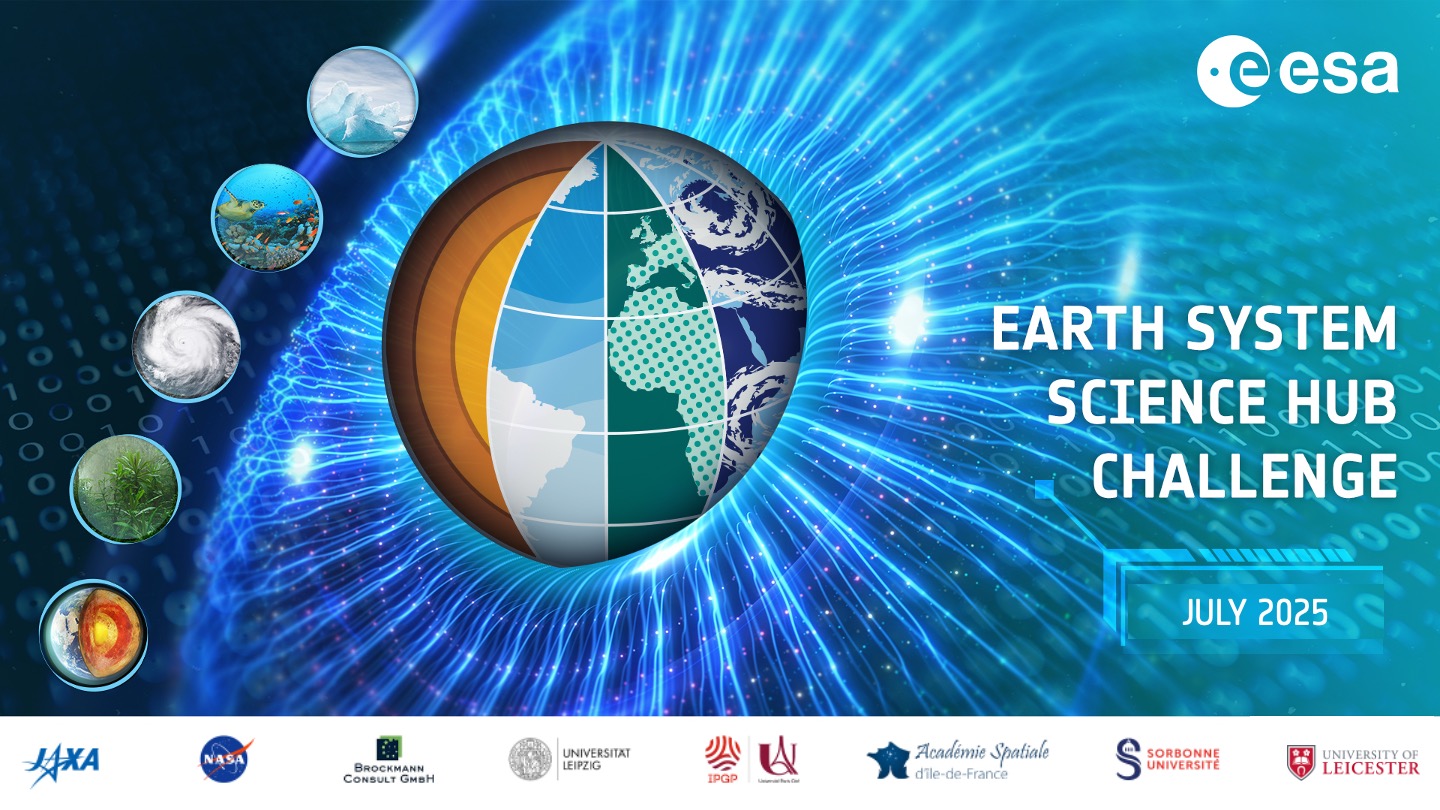
Science Hub Challenges: July 2025
- Post by: Anca Anghelea
- July 14, 2025
Bringing Together Future Scientists from University of Leicester and Sorbonne University/IPGP
Introduction
The Science Hub Challenges are an innovative initiative by the European Space Agency (ESA), dedicated to graduate students passionate about Earth sciences. Organised twice a year, the programme welcomes participants from universities in ESA Member States, aiming to provide a collaborative environment that empowers students to connect with ESA scientists, develop scientific skills, and experience ESA’s dynamic research culture firsthand.
The first edition of 2025took place from 7-11 July and was organized in collaboration with the University of Leicester and Sorbonne University/IPGP (funded by the Académie Spatiale d’Île-de-France).
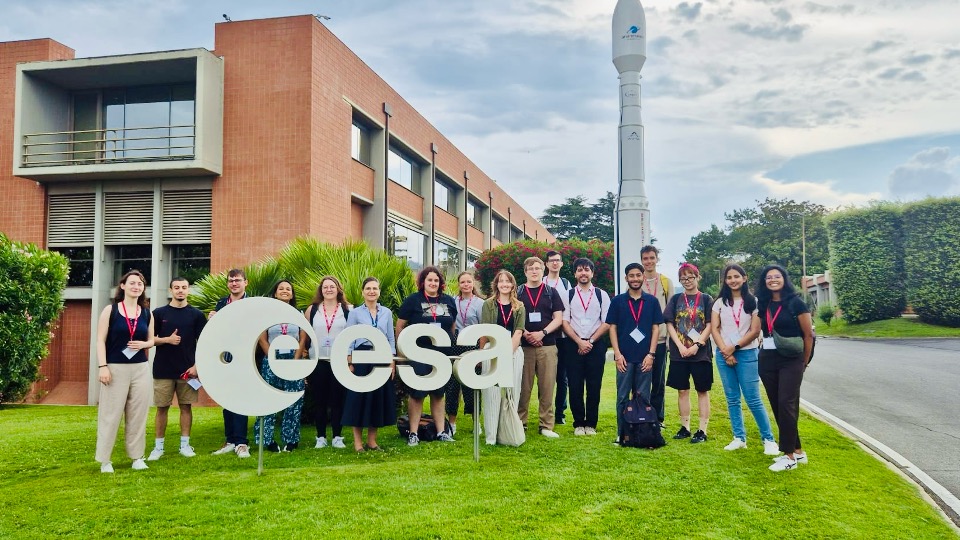
A Week at ESRIN: 7-11 July 2025 Edition
Hosted at ESA’s ESRIN facility – the agency’s central hub for Earth Observation – the Earth System Science Hub Challenges foster cross-disciplinary collaboration and knowledge exchange among master and doctoral students. Each edition brings together expert talks from ESA EO scientists and mission managers, hands-on research on practical projects with ESA data, and immersive sessions. Students gain exposure to ESA’s latest research directions and technological advancements – including novel science missions, EO applications and computational platforms for Earth Observation.
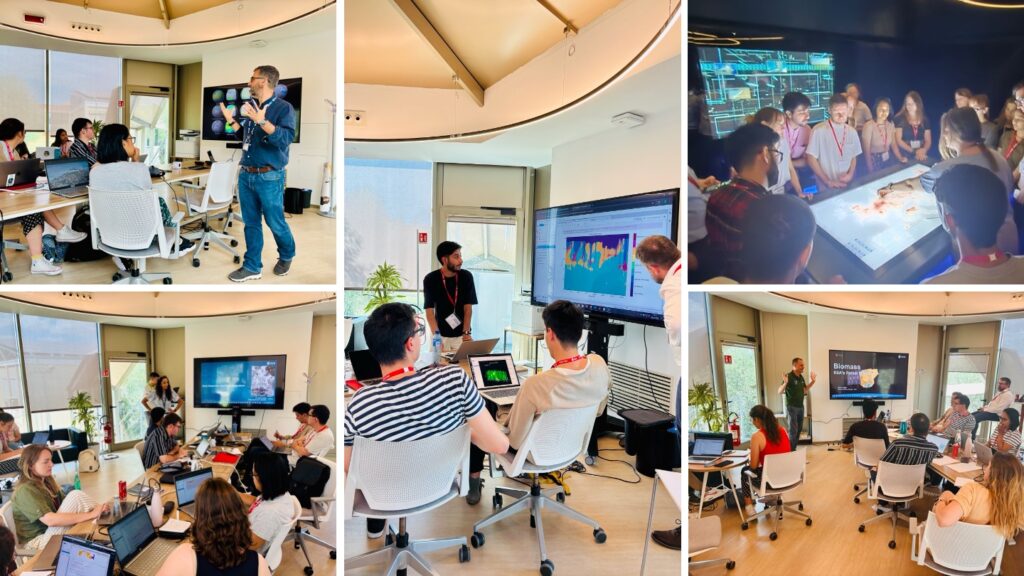
From July 7th to 11th, 2025, the first edition of this year’s Challenges brought together 14 ambitious students from the University of Leicester and Sorbonne University/IPGP. Throughout the week, participants immersed themselves in an intensive schedule, which balanced scientific research with opportunities for networking and cultural exchange. The curriculum included expert lectures, Q&A sessions, and informal gatherings, all designed to build lasting academic and professional relationships.
One of the workshop’s standout features was the deep dive into ESA’s Earth Observation missions. Students were introduced to ESA’s Earth Explorers Missions EarthCARE (presented by ESA’s Bjorn Frommknecht – EarthCARE Mission Manager, Timon Hummel – ESA Atmospheric Composition Scientist, and Takuji Kubota – JAXA EarthCARE Mission Scientist, online) and BIOMASS (presented by ESA mission manager Klaus Scipal), as well as the Copernicus Sentinel-5P (presented by ESA mission manger Claus Zehner). They learned about ESA’s activities for monitoring and understanding forests from ESA forest applications scientist Neha Hunka as well about the ESA advances on air quality and greenhouse gases from ESA atmosphere scientist Edward Malina. To get a full picture on the role of EO on atmosphere, prof. Barry Leffer – NASA Tropospheric Composition Programme Manager also presented (online) the activities led by NASA on observing air pollution from space.
Special visit to the Φ-Lab (led by ESA’s Ruben Cartuveyls) offered a glimpse into the disruptive innovation activities in AI4EO. Finally, the students enjoyed the visit to the Φ-Experience – an immersive space where they could learn and interact with EO data in an alternative way. These sessions encouraged students to engage with real-world data and witness the science behind satellite missions.
The Scientific Challenge
The key component of the week was the collaborative challenge, designed to simulate the teamwork and problem-solving required in scientific research. Students were divided into mixed teams, each tasked with addressing complex Earth Observation challenges. Using platforms like DeepESDL and EarthCARE MAAP, they explored topics such as the detection of extreme events, observing dust storms, and volcanic impacts on vegetation; spatio-temporal visualisation of satellite data; and the identification of aerosols and cloud layers in LIDAR profiles. Having convenient access to ESA data close to the computing resources allowed them to complete the scientific challenges within the short time available and present their results during their last day of visit. Throughout the week, technical support was provided by Brockmann Consult’s Yogesh Singh and Konstantin Ntokas, ESA’s Saskia Brose and Serco’s Joseph Melizza. Scientific support was ensured by prof. Miguel Mahecha and Dr. Guido Kramer from University of Leipzig, as well as by the accompanying university supervisors Dr. Tim Trent, Prof. Kevin Tansey and PhD candidate Selviga Sinnathamby who helped guide the students work and gave them tips on how to take their research further into an eventual publication.
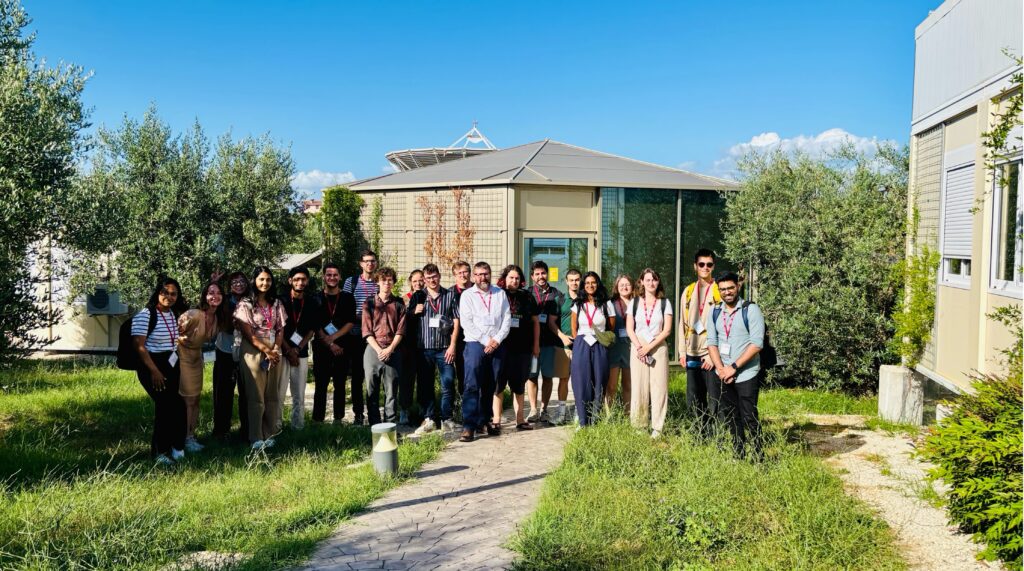
From Workshop to Publication: Next Steps
It was an enriching week for the Sorbonne Université students at ESRIN, where they enhanced their EO skills by working with ESA data in collaboration with University of Leicester students, met with mission managers from current satellite missions, and engaged with scientists and engineers to better understand how science is conducted at ESA – PhD Candidate Selviga Sinnathamby, Sorbonne University.
The journey doesn’t end with the workshop’s conclusion. In the coming weeks, students will refine their analyses and transform their work into engaging, interactive stories to be published on the ESA-NASA-JAXA Earth Observation Dashboard. This opportunity enables participants to share their discoveries with the global scientific community—amplifying the impact of their research and showcasing the outcomes of international collaboration.
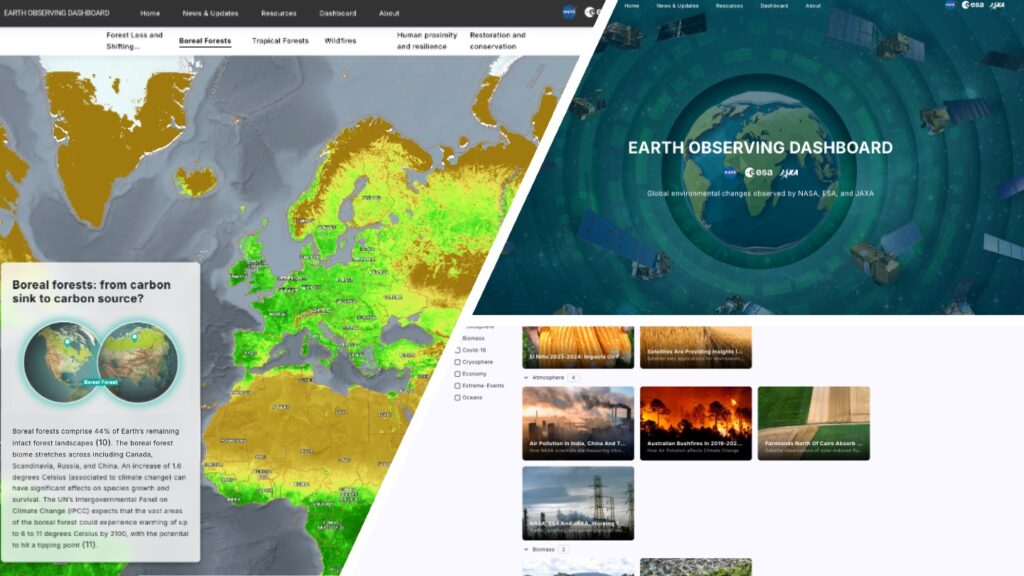
Looking Ahead: Opportunities for 2026
Building on the momentum of the 2025 workshop, ESA invites new applicants to join the upcoming Science Hub Challenges. The next call for participation opens on July 29, 2025, at sciencehub.esa.int. This is the perfect chance for students and faculties interested in advancing their expertise in Earth Observation to become part of a vibrant, growing network of scientific innovators.
Relevant Links and Resources
- Science Hub Challenges information and applications: sciencehub.esa.int
- ESA’s ESRIN facility: esa.int/About_Us/ESRIN
- Earth Observation Dashboard: eodashboard.org
- DeepESDL Platform: deepesdl.readthedocs.io
- EarthCARE MAAP Platform: maap-project.org
- Φ-Lab: philab.esa.int

